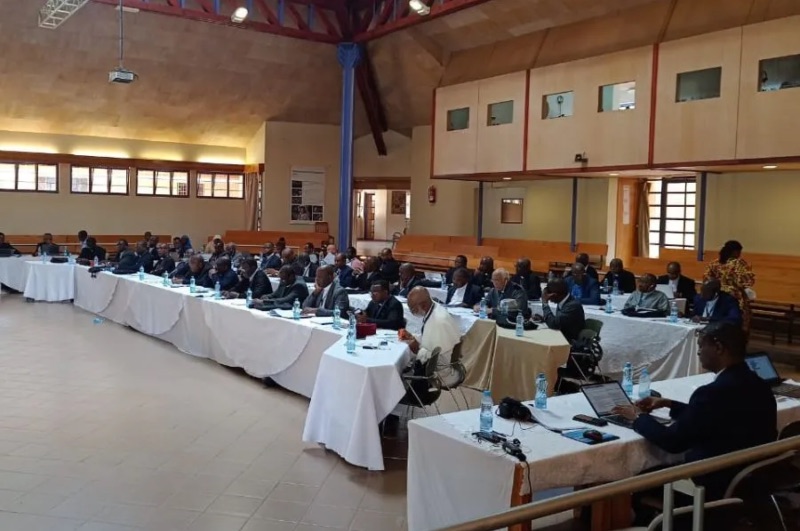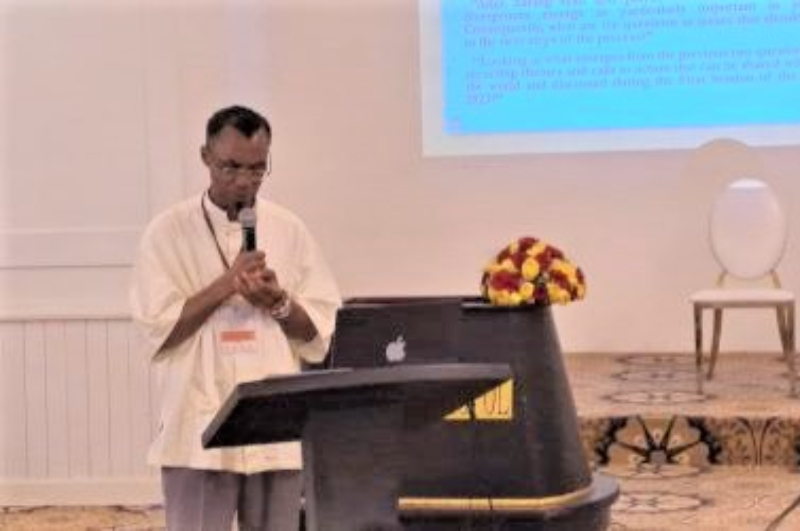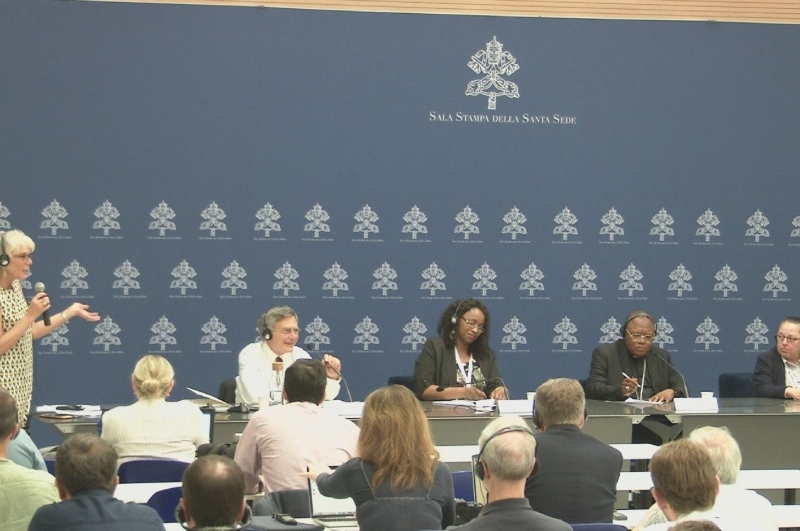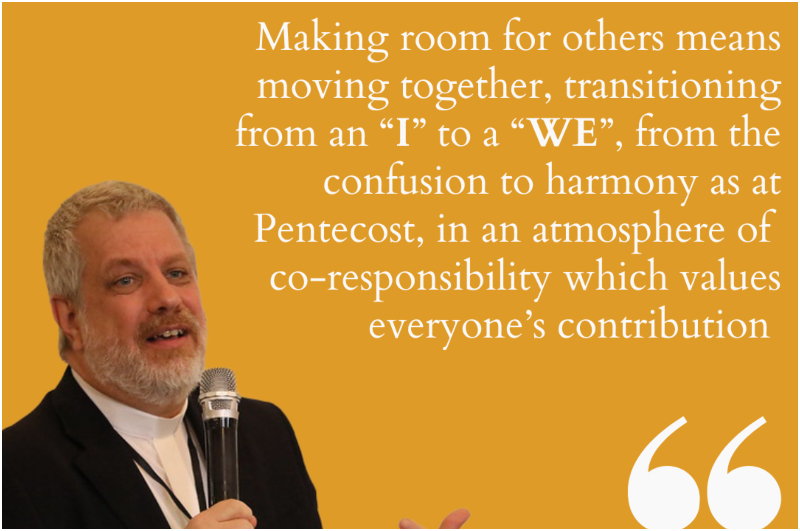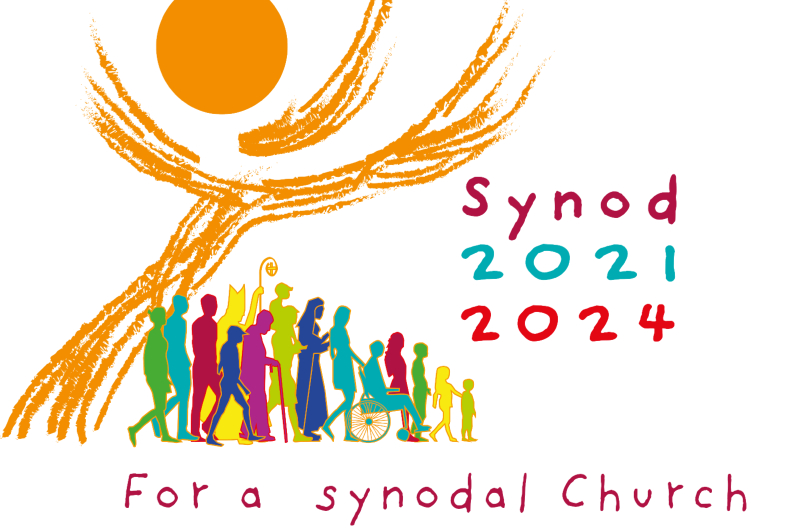

“Listening to the participants who are here, who will represent us Africa, I think one thing that I heard yesterday about their expectations in Rome about the Synod is that by the end of all the discussions, the Catholic Church will remain united, adhering to the scriptures and to the Catholic Doctrine.
That’s their main expectation,” said Fr Andrew Ulemu Kaufa, SMM, Consultor to the Vatican’s Dicastery for Communication and the Social Communications Coordinator at the Association of Member Episcopal Conferences of Eastern Africa (AMECEA).
In a press conference at the end of a two-day orientation seminar for the African Delegates to the 16th Ordinary General Assembly of the Synod of Bishops in Rome in October, held at the Mariapolis Retreat Center, Nairobi, on August 17, Fr Rafael Simbine Junior, the Secretary General of the Symposium of Episcopal Conferences of Africa and Madagascar (SECAM), flanked by Fr Kaufa and Ms Sheila Pires, said the seminar was to help the delegates familiarize themselves with the Instrumentum Laboris- the working document as well as the methodology of Spiritual Conversation which shall be used at the Synodal Assembly in Rome.
According to Fr Kaufa, what was more important for the gathering that brought together over 50 delegates comprising of a Cardinal, Bishops, Priests, Consecrated persons and the laity from across the continent, was for the participants “to be familiar with the working document which will be used and the methodology of conversation which they will follow, which is called the Spiritual Conversation. For without understanding the document and the methodology that they will use they will be confused.”
The member of the Montfort Missionaries observed that during the seminar organized by SECAM in partnership with the African Synodality Initiative (ASI), many of the participants, the majority bishops, were not accustomed to the Spiritual Conversation methodology as a way of listening and communicating.
“My observation is that it takes time for the participants to appreciate the methodology, when the process begins the participants come with many questions and then you have to tell them…wait we have not yet reached there. But by the end of the process they come to realize how the conversation is supposed to go,” he said.
Fr Kaufa explained the Spiritual Conversation, “involves a lot of listening and listening is much more difficult. I would rather talk than listen. So when they are coming everyone wants to talk but the method is saying to listen. And it becomes a challenge. I noticed the same here and for those who were introduced to the methodology for the very first time, it took them time, but today after the discussions everybody is at least understanding the process.”
For a section of the Church in Africa that is apprehensive of the Synodal process that it could introduce new ideas that are foreign to the Church, Fr Kaufa said there was no need to worry as “no decision has been taken on all the issues that have been raised.”
He said, “People are expressing themselves and different issues have come up. From our side the bishops have also spoken very much about their concerns, they are concerned about polygamy, which is also an issue but no decision has been taken on anything.”
Ms Sheila Pires, a delegate to the October Synod and the Communications Officer at the Southern African Catholic Bishops Conference (SACBC), also reiterated Fr Kaufa’s sentiments in saying the Synod meeting in October “is a listening process, it is not the end of the Synod but it is ongoing. It is a synodal process of listening and of dialoguing.”
The African Delegates to the October Synod are expected to travel to Rome in late September in readiness for the General Assembly, which is set to begin in early October 2023.
Related Articles
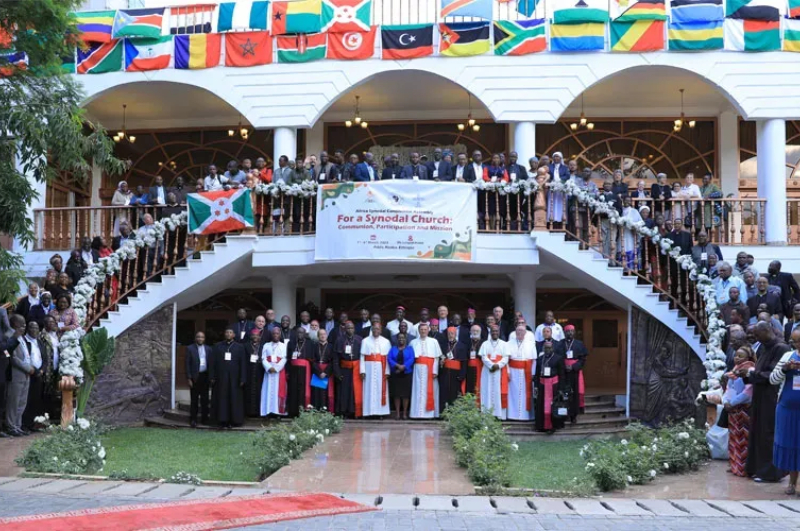
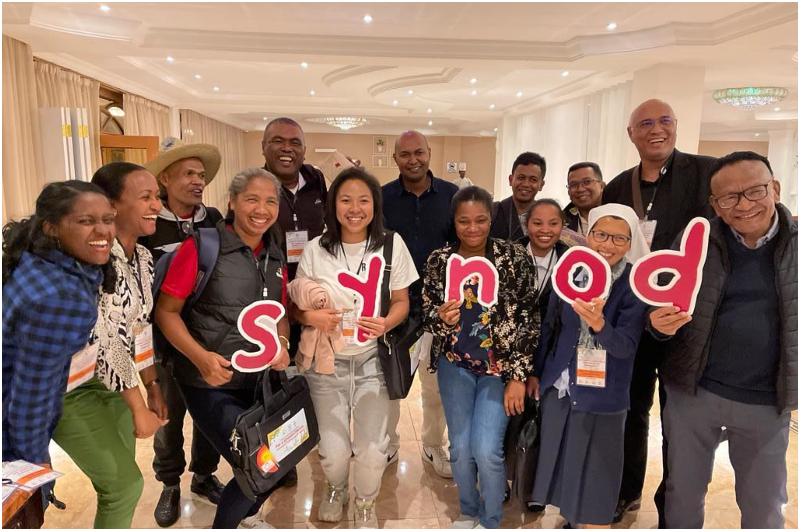
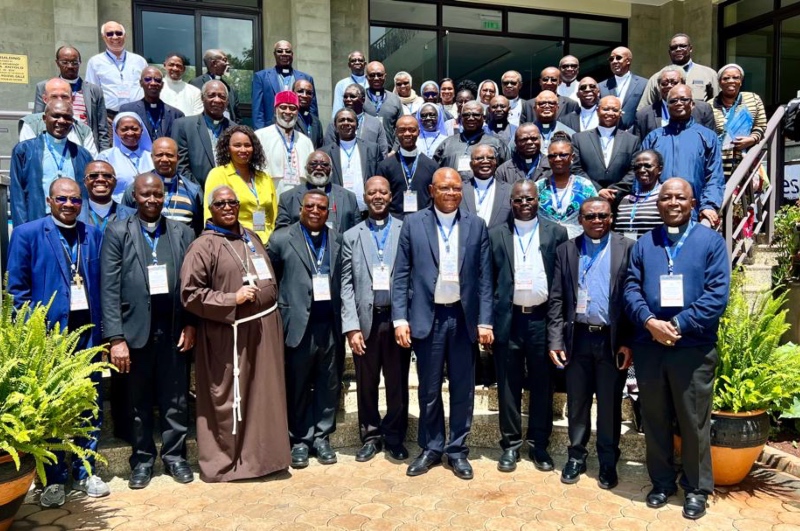

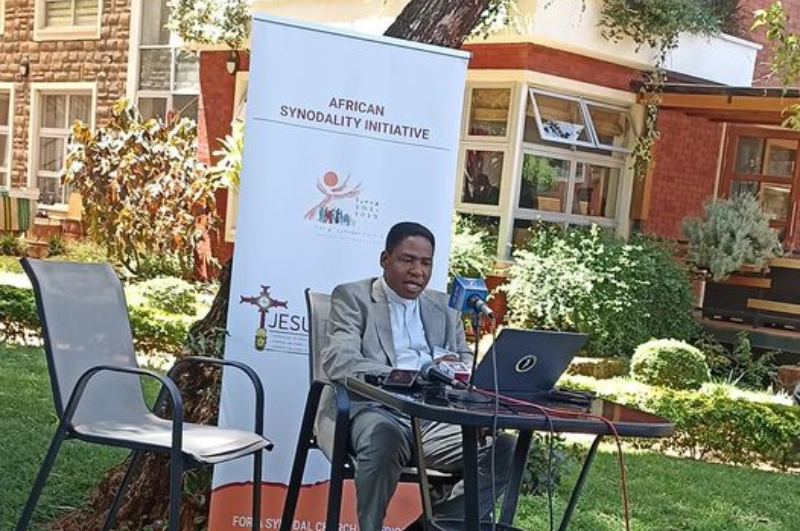
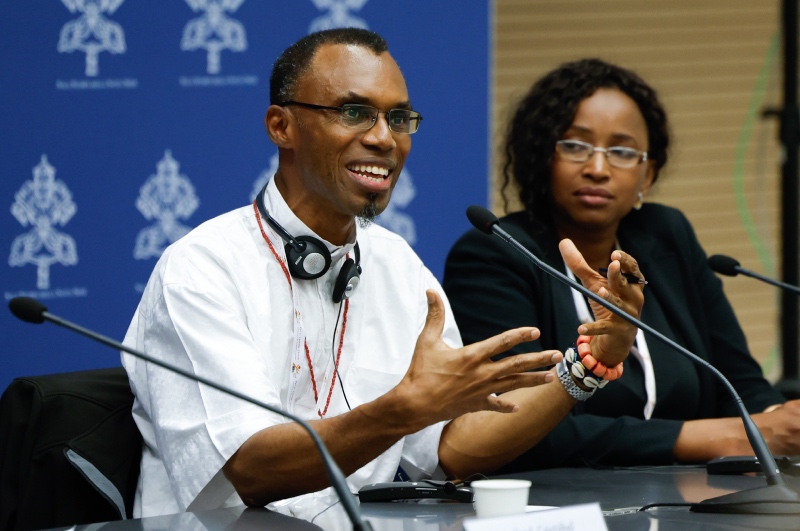

Select Payment Method
Pay by bank transfer
If you wish to make a donation by direct bank transfer please contact Fr Paul Hamill SJ treasurer@jesuits.africa. Fr Paul will get in touch with you about the best method of transfer for you and share account details with you. Donations can be one-off gifts or of any frequency; for example, you might wish to become a regular monthly donor of small amounts; that sort of reliable income can allow for very welcome forward planning in the development of the Society’s works in Africa and Madagascar.
Often it is easier to send a donation to an office within your own country and Fr Paul can advise on how that might be done. In some countries this kind of giving can also be recognised for tax relief and the necessary receipts will be issued.


